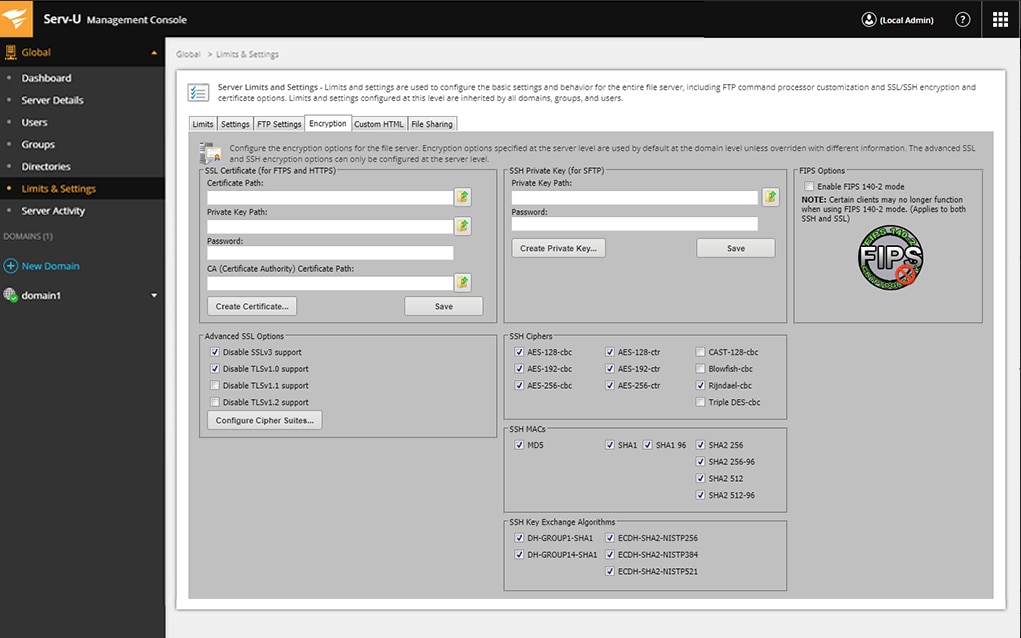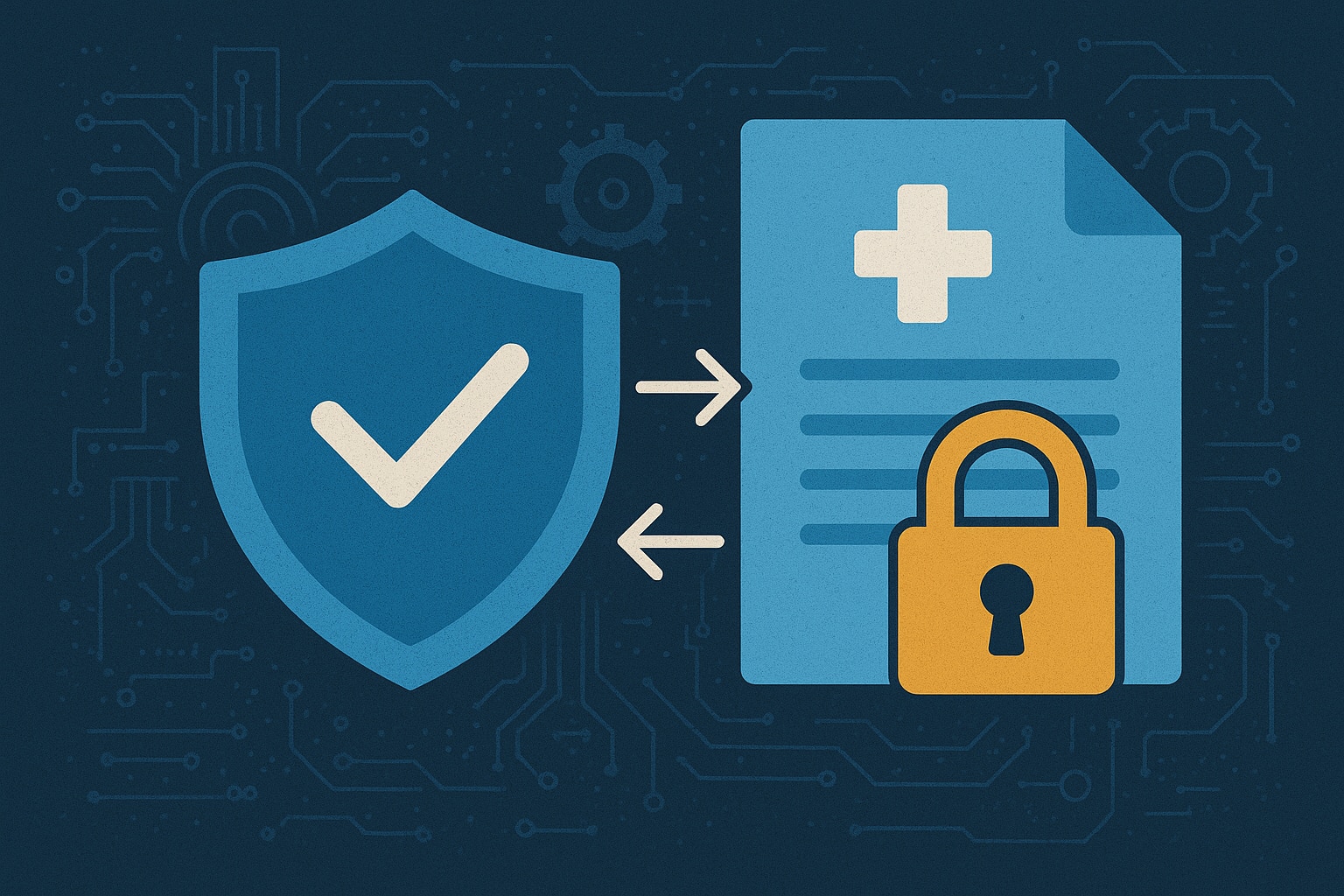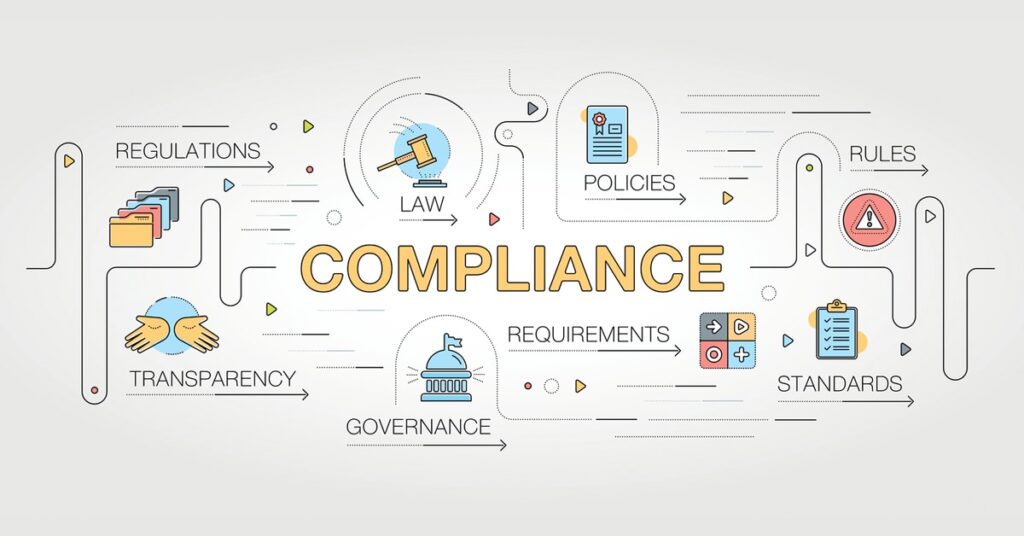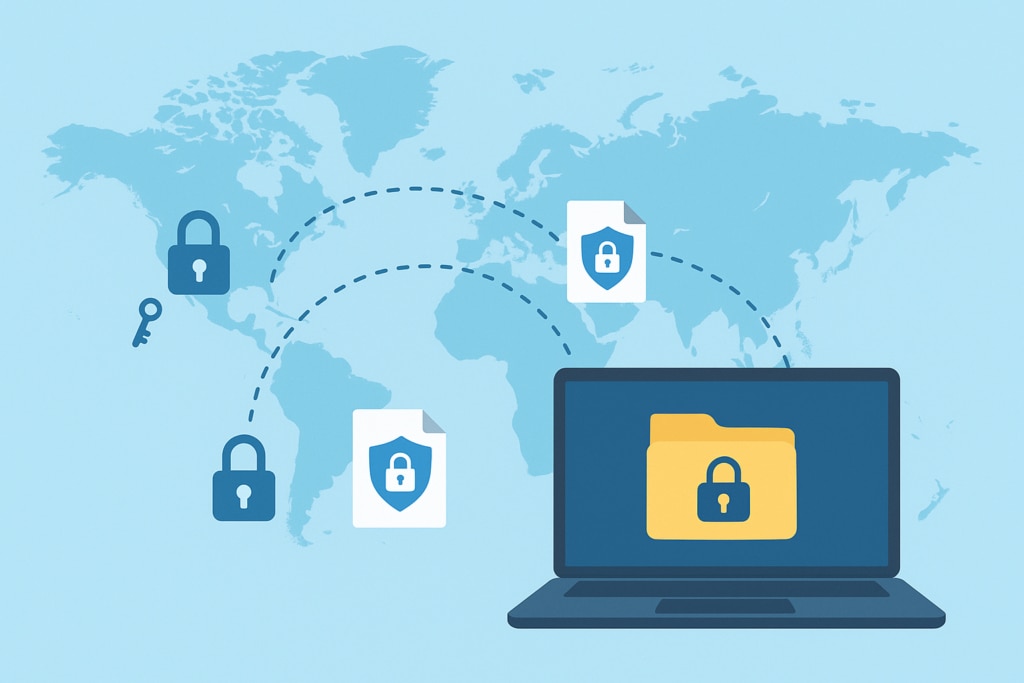Health Insurance Portability and Accountability Act (HIPAA) compliance is about more than firewalls and passwords. Your file-sharing solutions could be the weakest link in protecting sensitive patient data.
When we think about healthcare cybersecurity, we tend to focus on large systems: electronic health records, databases, and billing platforms. But one everyday workflow that’s also as vulnerable – and often overlooked – is file transfer. Whether it’s a radiology scan, referral form, billing spreadsheet, or lab report, files containing protected health information (PHI) move constantly across your organization.
If those transfers aren’t properly secured, monitored, and controlled, your organization may be exposing itself to unnecessary risk and falling short of HIPAA requirements in the process.
The Hidden Compliance Risk in File Transfers
For most covered entities and healthcare providers, PHI doesn’t simply sit in a database. It’s routinely exported, emailed, uploaded, downloaded, and synced – sometimes by end users who aren’t aware they’re handling regulated patient information.
This is where the danger lies.
Too often, staff share files using:
- Unencrypted email
- Consumer-grade cloud storage such as Dropbox, Google Drive, or OneDrive
- USB drives or external media
- Custom scripts lacking audit trails or access controls
These methods often lack the encryption, authentication, or logging required under the HIPAA Security Rule. And if a data breach occurs, these uncontrolled workflows make it nearly impossible to investigate or prove compliance.
HIPAA Compliance Requirements for File Sharing Solutions
The HIPAA Security Rule doesn’t mandate specific software, but it requires clear technical safeguards to protect electronic protected health information (ePHI). For file sharing that supports HIPAA compliance, your solution should support:
- Transmission security: Encrypt PHI in transit using protocols such as Secure File Transfer Protocol (SFTP), File Transfer Protocol Secure (FTPS), or HTTPS
- Access controls: Restrict access to authorized users only, with folder-level permissions and IP filtering
- Audit trails: Track who accessed what, when, and how
- Authentication: Assign unique user IDs and enforce multi-factor authentication (MFA) or two-factor authentication
- Retention policies: Define how long PHI is stored and when it should be deleted
- Support for large files: Ensure your solution can handle high-resolution imaging, reports, and other large healthcare files without compromising security
If your current file-sharing platform doesn’t support these safeguards, it could be compromising your compliance and patients.
How Serv-U Supports HIPAA Compliance
SolarWinds® Serv-U® Managed File Transfer (MFT) helps address these risks with a self-hosted, secure file sharing solution that puts your IT team back in control.

Key security features include:
- Secure protocols (SFTP, FTPS, HTTPS): Encrypt PHI in transit to meet HIPAA transmission security standards
- Role-based access controls: Ensure only authorized users can view or move files, with folder-level and IP restrictions
- User authentication: Integrate with Active Directory, enforce strong passwords, or enable MFA
- Detailed audit trails: Log all file activity, including uploads, downloads, and admin actions for traceability
- On-premises deployment: Keep PHI behind your firewall and off third-party cloud-based platforms
- Retention and automation: Configure file retention policies and automate secure transfers to reduce manual errors and improve consistency
- Real-time monitoring: Gain visibility into file activity as it happens to respond quickly to potential risks
- File storage control: Manage where and how files are stored, to support compliance with internal and external data governance policies
These features allow system admins to configure, monitor, and enforce HIPAA-aligned file sharing policies without relying on ad hoc tools or unsanctioned services.
Three Real-World Use Cases Where File Transfers Go Wrong
Here are a few common scenarios where unsecured file transfers can cause compliance issues and how Serv-U helps prevent them:
Use Case #1
- A nurse emails a spreadsheet of patient records to a third-party lab; there’s no encryption, no logging, and no access restrictions once it’s sent
- With Serv-U: The file is transferred securely using SFTP, and access is limited to approved lab users with traceable credentials
Use Case #2
- An IT technician shares PHI via Dropbox due to file size limits on email; the admin has no visibility, and no audit trail exists
- With Serv-U: The file is uploaded through a secure web interface with drag-and-drop support and full activity logging
Use Case #3
- A contractor uses an old FTP script to pull daily reports, but the credentials are shared among team members; there are no unique user IDs, no MFA, and no accountability
- With Serv-U: Unique credentials and MFA are enforced, and each action is logged under an individual user account
Beyond Compliance: Supporting Business Associate Agreements and Data Protection
Serv-U includes features such as Advanced Encryption Standard encryption, Transport Layer Security support, and centralized audit logging to help you enforce strong data protection policies. While SolarWinds does not offer Business Associate Agreements for Serv-U, since it does not maintain PHI on your behalf, the solution can be configured to support your organization’s HIPAA Security Rule compliance efforts.
Final Thoughts: Is Your File Sharing HIPAA Compliant?
If your file sharing services aren’t secure, your HIPAA compliance is at risk. From end-to-end encryption to access control, real-time monitoring, and audit logging, healthcare organizations must ensure every file transfer is safe, traceable, and compliant.
Serv-U MFT provides a flexible and secure transfer platform designed to help healthcare providers reduce the risk of unauthorized access and align with HIPAA standards. Is your current file transfer solution helping you stay compliant or putting patient data at risk?
Learn more about Serv-U today!



